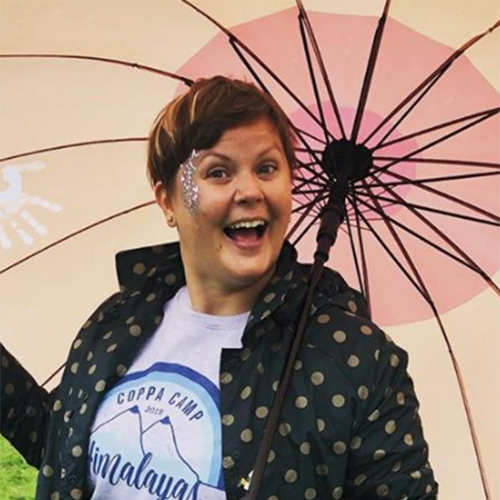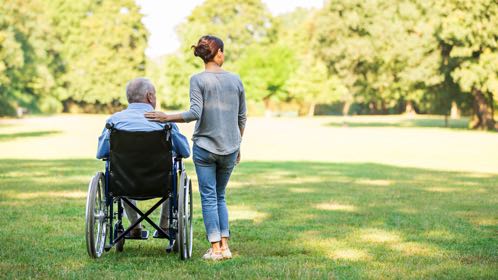5 Things Cancer Taught Me about Self-Isolation

We’ve all heard it said. In fact, we’ve probably all said it at one time or another over the past few weeks:
We are in unprecedented times.
As many countries find themselves in a lockdown situation where people are only allowed to leave the house for a few, very specific reasons, as a result of the new coronavirus, many people have found themselves navigating the treacherous terrain of a new normal.
For some of us though, this feels a bit like history repeating itself. For people who have been through treatment for cancer, or experienced other long-term physical or mental health conditions, the idea of self-isolation, social distancing and quarantining are far from new.
We’ve been here before. We know the drill.
That doesn’t make it any easier, it just means that we have some coping methods for the unusual scenario the nation finds itself in that others may not.
I was diagnosed with breast cancer in 2015, and what with a chemotherapy regime that battered my immune system and left me battling neutropenic sepsis on more than one occasion as well as 10 surgeries that left me incapacitated for weeks at a time, I am recognizing many parallels between that strange time and this one.
An all too familiar feeling
It’s been four years since I finished active treatment and I never thought I’d see myself restricted to the four walls of my lovely flat again. I am so grateful for my health and to not to find myself in the “vulnerable” category, but the lockdown announcement from the UK Prime Minister, Boris Johnson, did spark a bit of panic in me.
I felt myself edging closer to the Dark Place of bad mental health.
But for the cancer community, it’s like we’ve already done the dress rehearsal with a skeleton cast and now the entire cast is on stage for the real performance. This time though, we’re in it together so the isolation and loneliness isn’t quite so isolated and lonely.
The resilience and the post-traumatic growth I gained from the last time I was self-isolated is standing me in good stead for weathering this storm and helping others weather it, too. So what did I learn about managing my mental health the last time I was self-isolated? And what can I tell you about managing your mental health in this uncertain time?
Try some breathing techniques
One of the first things anxiety takes hold of is our breathing. When we’re stressed or anxious our breathing can become shallow, or we tend to hold it in without realizing which can have all sorts of physiological impacts on us. Breathing deeply and in a more considered manner is one of the best tools for reducing stress and is really useful when our minds and hearts are racing.
Breathing deeply sends a message from your body to your brain to relax. Taking a few moments to pause and concentrate on the feeling of breathing in fully and breathing out fully is a great way to ground yourself back in your body, slowing down your heart rate and lowering your blood pressure. So try it now. For the rest of this article, slow down your breathing and let it ground you.
Switch the real world off
It’s so important to stay up to date with the news and what’s going on in the world in a time of a pandemic, but constantly checking your apps for updates on current affairs isn’t good for your mental health.
Incessant social media scrolling isn’t much better. We take on so much of what we read without realising, so make a promise to yourself to only check the news or your social feeds a limited number of times a day. If you can, switch your phone off.
Talk to someone
The main difference between when I was last isolated and the situation in which we currently find ourselves is that we are all in the same boat. I only knew a handful of people who were going through what I was during my cancer treatment. Now though, however you are feeling, you can guarantee that someone else is feeling the same.
Reach out to your friends and your family. Even if you can’t see them in real life, chatting through your concerns and exploring your feelings is the best way to process what is arguably one of the most challenging and unnerving times in our lives.
Make the most of being outside
Many of us are restricted on how long we can spend outside at the moment, and some people who are shielding from coronavirus aren’t allowed outside at all. But if you can, it’s important to get outside (in line with government recommendations) and move your body. There’s something healing about feeling the air on your skin and the sun on your back, especially when we’re otherwise spending a lot of time inside.
There are tonnes of apps and websites and online videos that can help you exercise outside too, should the mood strike. Set a time in the day where you can get your dose of fresh air and vitamin D and stick to it. If you’re in quarantine, open the window and stand or sit near it for as long as you can. Fresh air is a game changer for altering your mood.
Sit with your feelings
All that said, sometimes there's no way to escape negative feelings, and in fact running from them can exacerbate things further. It’s important to acknowledge how you are feeling and remind yourself there’s no right or wrong way to feel about this alien situation.
Know that one day, the pendulum will swing back the other way and things will even out. We will feel joy again, we will laugh harder than we thought we ever would. We will see the sunshine and we will be able to spend all day in it. We will get through this. And we’ll have learned a lot about ourselves along the way.












